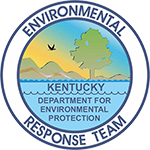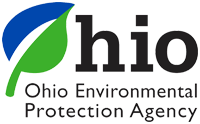INDUSTRY SECTOR: Facilities/Terminals
This session will focus on some best practices for your GRP's by prioritizing your initial plans from operator and state plan writer perspectives.
Mr. Hazel has over 28 years experience in emergency response operations including oil and HAZMAT spill response, emergency lightering of vessels during salvage operations and oil spill technology research and development. As Vice President of Marine Services for Marine Pollution Control (Detroit, MI), he is responsible for coordination and oversight of the company's Oil Spill Removal Organization (OSRO) classification and response program.
INDUSTRY SECTORS: Rail/Trucking, Facilities, Tanks/Barges
Not all releases on water are petroleum-based. This session will present three unique releases: urea; plastic pellets, frozen peas, and whisky all released into rivers. The lessons learned from these non-traditional releases will highlight their unique challenges.
Drew McCarty has been providing emergency response services for 38 years. He began his emergency response career serving his community in 1980 as a Firefighter and over a decade as the Assistant Fire Chief in his local fire department. Those experiences, coupled with more than 30 years of industrial hazardous materials events, have complimented his career in the industrial emergency response contracting industry. His accomplishments have gained national recognition and credibility for mitigating incidents involving high-hazard chemical emergencies and hundreds of others with safety and/or environmental sensitivities. He has developed multiple service lines from scratch, and SPSI has certifications and qualifications as a CHLOREP Level III response contractor through the Chlorine Institute, certifications by the Association of American Railroads Bureau of Explosives, and SPSI is also a U.S. Coast Guard Verified Oil Spill Removal Organization (OSRO #718). Mr. McCarty holds many hazmat specialist credentials and is a certified Level II Non-Destructive Tester.
INDUSTRY SECTORS: Pipeline, Rail/Trucking, Facilities/Terminals, Tanks/Barges, Government/Regulatory
Non-floating oils or Type V oils have been an emerging concern in the maritime transportation system. This panel discussion will explore a recent barge discharge incident into the river, the resources used to remove the oil, the regulatory process to achieve OSRO certification and technologies employed to assess the sunken oil location and mitigate its effects for future spills.
INDUSTRY SECTORS: Pipeline, Rail/Trucking, Facilities/Terminals, Tanks/Barges, Government/Regulatory
This session will illustrate how successful planning using lessons learned can lead to a successful response. The speakers will share their experiences integrating with multiple agencies, well run ICS, and do’s and don’ts of how moving too quickly to be proactive may be a mistake.
INDUSTRY SECTORS: Pipeline, Rail/Trucking, Facilities/Terminals, Tanks/Barges, Government/Regulatory, Power Generation/Transmission
Communication and messaging are key to recovery when a community is impacted by a spill or crisis event. Companies should prepare in advance to address communication for potential crisis events. With the rise of social media, communication must be faster and more accurate than ever before. This session will provide information on developing your corporate playbook for a crisis event, increasing our understanding of social media’s impact on communication, and sharing real case studies from experience gained by professionals over the past 20 years who communicate environmental and health impacts after a spill or release.
INDUSTRY SECTORS: Pipeline, Rail/Trucking, Facilities/Terminals, Tanks/Barges, Government/Regulatory, Power Generation/Transmission
This session of diverse speakers will focus on effective communication and stakeholder planning and preparedness and how to develop organizational resilience through best practices and lessons learned.
Zach leads the environmental science group for Duke Energy Corp. His diverse group of scientists includes 92 chemists, biologists, geologists, engineers and limnologists. The group's functional areas include: - Water Resources (surface water quality and aquatic ecosystem health) - Natural Resources (terrestrial species) - Central Analytical Chemistry Laboratory - Groundwater Science group Zach has been in his current role with Duke Energy since 2014. He is a licensed professional geologist in the state on NC and holds a Masters of Science degree in geochemistry from the University of Georgia.
INDUSTRY SECTORS: Pipeline, Rail/Trucking, Facilities/Terminals, Tanks/Barges, Government/Regulatory
This session will cover topics related to spill response and specific challenges and tactics involved with swift water response. The discussion will focus on lessons learned and techniques for response in deep and shallow water, and will be rounded out with a presentation on the new Swift Water Response Good Practice Guide currently under API development.
INDUSTRY SECTORS: Pipeline, Rail/Trucking, Facilities/Terminals, Tanks/Barges, Government/Regulatory
This session will explore the role and methodology for collecting baseline data and how this might be used in a potential response and restoration of the environment.
INDUSTRY SECTORS: Pipeline, Rail/Trucking, Facilities/Terminals, Tanks/Barges, Government/Regulatory
This session will include everything you wanted to know about cold weather response but were afraid to ask. Topics include first response strategies, tricks of the trade for ice response, safety concerns and logistical hurdles. A case study highlighting the unique challenges of a cold weather oil/hazmat spill will also be presented.
Tony is the Emergency and Hazmat Response Manager for the US NorthTerritory of Canadian Pacific Kansas City Railway. Tony has 31 years of experience with hazmat response, environmental assessment, and remedial actions. He has a Civil Engineering degree and keeps certifications in firefighting and other specialized trainings.
Personal Biography - Bob Dundas A.S. Geology - Casper College B.S. Geology - Utah State University Registered Professional Geologist - State of Wyoming Bob has over 35 years of diverse experience working in the oil and gas, regulatory and environmental fields. For the past 23 years he has worked for the True companies a family owned group of businesses serving the oil and gas, pipeline, trucking and agriculture sectors. As Environmental Coordinator he has responsibility for all environmental related matters including air permitting, spill reporting and response, planning and preparedness, regulatory interpretation and compliance, remediation, stormwater construction, SPCC and preparation of miscellaneous environmental related permits. Bob serves as the environmental regulatory liaison with multiple local state and federal agencies. He has also served as the Environmental Unit Leader on two major oil spills.
Mr. Hazel has over 28 years experience in emergency response operations including oil and HAZMAT spill response, emergency lightering of vessels during salvage operations and oil spill technology research and development. As Vice President of Marine Services for Marine Pollution Control (Detroit, MI), he is responsible for coordination and oversight of the company's Oil Spill Removal Organization (OSRO) classification and response program.
INDUSTRY SECTORS: Pipeline, Rail/Trucking, Facilities/Terminals, Tanks/Barges, Government/Regulatory
This session will cover the basic principles and inputs of oil spill modeling focusing on rivers and inland waters. Models can be useful in response exercises and drills to identify the spatial extent and timing for planning activities. We will also cover innovative approaches to modeling including 3D and virtual reality.
INDUSTRY SECTORS: Pipeline, Rail/Trucking, Facilities/Terminals, Tanks/Barges, Government/Regulatory, Power Generation/Transmission
Digital disruption, digital transformation, emerging technologies, visualization tools…much of these have been made possible through the expanded use of UAV's and real-time videos. This session will focus on leveraging real-time videos and other technologies linked to UAV's in order to make better decisions during response.
For 20 years, Dyron has been helping people prevent, respond to, and recover from chemical and radiation exposures. He frequently provides risk communication services in high-pressure scenarios - including preventive training, onsite response, and litigation support. Dyron manages the GHD FIRST (Fast Incident Response Services Team) and Industrial Hygiene groups, and covers projects across North America, and to some extent, globally. He is a recognized expert in air dispersion modeling and air monitoring in risk assessment, industrial hygiene, and emergency response scenarios. He has assessed chemical and radiation exposures relating to occupational health and safety issues, aerosol/dust exposure, asbestos exposure, and indoor air quality. He has responded to over 150 major hazardous materials emergencies and has served as an expert in litigation for multiple cases. Dyron is frequently consulted on emerging contaminants and their role in potential human exposure scenarios. Steven Briggs is a Senior Occupational Hygienist (OH) with Chevron and supports global HSE operations as well as a dedicated technical role in managing and delivering OH programs across the company. Mr. Briggs also leans on significant past experience in emergency response and management and plays a leadership role through the selection and management of the Chevron safety and health response team. This team is an assembly of Occupational Hygienists, Safety Officers, Medical Doctors and Nurses, Toxicologists, Epidemiologists, and Fire Professionals. Most recently he has led efforts to evaluate real time dispersion modeling as a potential tool for incident commanders. Mr. Briggs is a Certified Industrial Hygienist (CIH) and holds a MSPH from Tulane's School of Public Health and Tropical Medicine.
Mr. Whitton has been a civilian member of City of Cincinnati Police Department since 1979. He served in the 911 Dispatch Center and is currently assigned to the Technology and Systems Section where he manages Cincinnati's Citywide Neighborhood Public Safety Cameras as well as the Ohio River Port Security Cameras. NOTE: Will update prior to event should our abstract be accepted.
Walt is Co-Founder and Chief Technology Officer of Atlanta Drone Group, its public safety subsidiary Skyfire, and its oil & gas subsidiary Aevius. A serial tech entrepreneur for 20 years, Walt helped build Atlanta Drone into the company that has set up more public safety and emergency response drone programs than any other company. Walt's leadership was instrumental in Skyfire acquiring the very first BVLOS COA for public safety in the United States with the FAA's San Diego IPP - as well as being selected by various federal and state agencies to provide the very first overwatch by drone of a Tier 1 international event (Super Bowl LIII). In addition to providing emergency response for oil, gas, and railroads, Walt's team is often the first call of national news agencies such as The Weather Channel and CBS News to help keep millions of people safe from large-scale natural disasters such as hurricanes and wildfires.
INDUSTRY SECTORS: Pipeline, Rail/Trucking, Facilities/Terminals, Tanks/Barges, Government/Regulatory
This session will focus on the challenges and complexities associated with response planning across borders and jurisdictional boundaries. Speakers will address topics at the international and interstate levels, and within metropolitan areas. The session will begin with a brief summary of existing response agreements, then government and industry representatives will set the stage by sharing their experiences and lessons learned through exercises and incidents followed by an interactive Q&A.
N/A I have developed and co-chaired several previous CWW sessions. Myself and my colleague, Dan Barghshoon also with the CER, would develop and co-chair the proposed session which we envision as a panel discussion comprised of Indigenous/Tribal representatives from the US and Canada with experience in the area. We would use recently CER-developed best practices to inform the discussion. Panelists yet to be determined.








